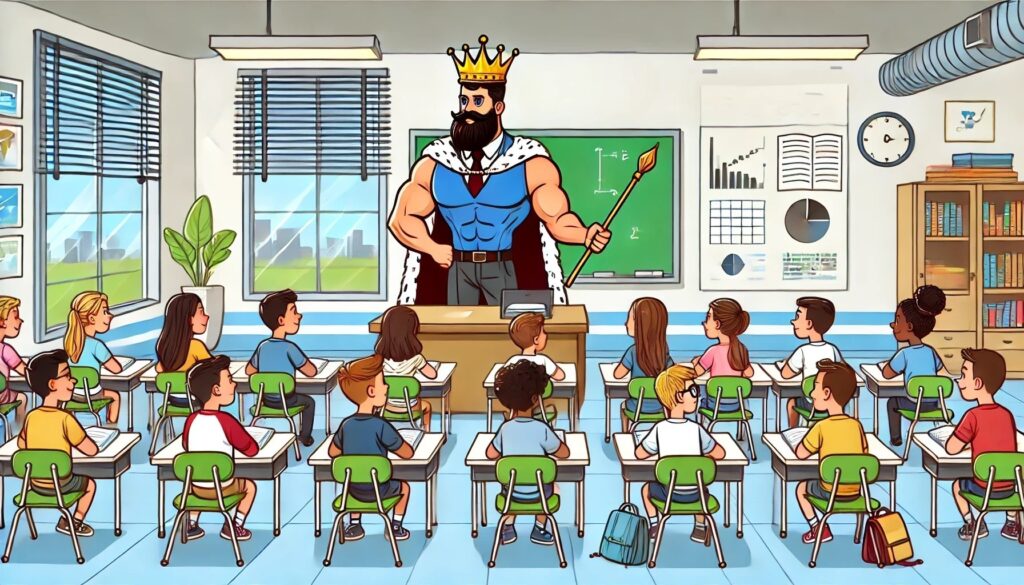As formalized by Mancur Olson in his seminal 1971 book The Logic of Collective Action, smaller social groups are easier to organize than larger ones. Consequently and other things equal, a small group will be more effective at lobbying governments, even if the total benefits of its members are smaller than what all the members of the large group lose. One illustration can be found in primary and secondary education, where teachers’ unions impose working conditions that are in their members’ interests but reduce the value of the product the pupils and their parents get. (See “School in Rich Countries Are Making Poor Progress,” The Economist, July 7, 2024.)
Two parties to an exchange benefit from it (as judged by each party for himself), otherwise one would decline. But this basic economic principle only applies to a free exchange; it does not apply if one party coercively imposes its conditions, or if one side includes involuntary members.
Since 2000, the OECD’s Programme for International Student Assessment (PISA) evaluates 15-year-old students in maths, reading, and science. The average scores showed no improvement until the early or mid 2010s, and then declined until 2022 (latest year available). Other indicators largely confirm the trend, which precedes the Covid-19 epidemic. The magazine notes:
Around a quarter of 15-year-olds in OECD-member countries do not meet basic proficiency in maths, reading and science, according to standards set by PISA. That means 16m teenagers struggle with tasks involving numeracy or find it more difficult than they should to draw meaning from basic texts.
One reason why the more numerous consumers (the parents of the pupils) cannot change the situation follows from Olson’s theory of collective action:
Pupils and their families are rarely organised; this makes it easier for teachers’ unions to resist changes to, say, teacher training and evaluation.
Some 70% of schoolteachers belong to a union, an unusually high proportion although it also includes less controlling employees’ associations. Parents whose children attend small schools may be able to organize themselves locally at low cost (in a decentralized system like that of the US). Yet, they often face state-level or national-level teachers’ unions. Trade unions benefit from special legal privileges and powers, such as the employer’s obligation to negotiate, strike disruptions or threats thereof, or the obligation of workers to be union members or to pay union dues. Depending on state law, teachers’ unions can exercise some of these powers, which facilitate their collective actions and translate into restrictive collective “agreements.”
I am not arguing that this problem is the only one plaguing public schools. Other imperfections of political processes including politicians’ short-termism prevent elected officials from correcting the weaknesses of the public education system, as The Economist recognizes:
Meanwhile leaders are asked to spend political capital on changes that might not bear fruit for years.
******************************

The unionized schoolteacher, by DALL-E (under the influence of your humble blogger)


READER COMMENTS
David Seltzer
Jul 11 2024 at 11:33am
Pierre: Good stuff. Because of the problems of collective action in education, more parents are home schooling their kids. Two points. There is difference between public schooling and education. Individuals seek alternative sources of information. I’m teaching myself to program in Python from videos on the web. If average scores showed improvement in the 2010’s, how much improvement was correlated with students who were home-schooled, chartered schooled, private schooled and religious schooled by Catholic and Jewish day schools?
Pierre Lemieux
Jul 11 2024 at 12:02pm
David: You’re right that there is a difference between public schooling and education.
Self-education works, but only if you have a base–if you have first learned how to think and to learn. As for homeschooling, I have become less enthusiastic over time. It depends on who is the home teacher and how much time he or she can devote to this difficult task. In education as in other fields, the division of labor is productive.
nobody.really
Jul 17 2024 at 9:33am
Grant Allen, Post-Prandial Philosophy (1894) (NOT Mark Twain)
Thomas L Hutcheson
Jul 11 2024 at 2:25pm
I suppose that a union might bargain for a lower-effort, less effective kind of teaching instead of money, but that’s a pretty small hook for such weighty conclusions about educational outcomes.
Richard W Fulmer
Jul 11 2024 at 4:46pm
Two of my kids are middle school math teachers in non-unionized Title I schools. Both often get students who are functionally illiterate. Students are “socially promoted” to the next grade even if they haven’t learned the subject. Social promotion and grade inflation seem to be nationwide phenomena, independent of teachers’ unions.
Pierre Lemieux
Jul 12 2024 at 10:30am
Thomas: Note what I said:
This being said, give coercive power to any individual or organization, and you can be sure that they will bargain for real benefits at any possible margin. The complaint that bad teachers can’t be fired is common. The incentive hook is a big hook.
Jose Pablo
Jul 18 2024 at 11:54am
The biggest benefit that teacher’s unions get is that “bad” teachers can’t be fired. This has the greatest possible influence on teaching quality.
And it is awfully clear to children and parents who are the teachers that should be fired. This information freely (and abundantly) circulates among parents (and students) every year in August when the kids get their schedule (every parent/kid knows whether they have been “lucky” or not with the teachers they have got).
The information is there and would be very easy to collect. Why is not even collected? (God forbid, used)
Comments are closed.